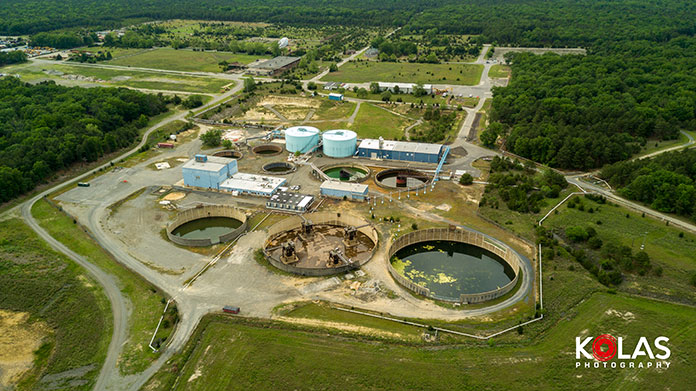
TOMS RIVER – A virtual meeting where Ciba-Geigy’s current owners will discuss restoration projects will be held on January 9 from 6-7:30 p.m.
The virtual meeting is being billed as an informational session, and registrants are allowed to ask questions. For registration, visit basf.com/us/en/pages/toms-river.html
The current owner, BASF, will preserve 1,000 acres of the site, while being allowed to develop or sell the remaining 255 acres, which is zoned industrial.
Of the 1,000 acres to be preserved, about 375 acres will see ecological restoration projects, such as freshwater wetlands complex, restoration of riparian areas, flood plain and wetland enhancements, creation of upland grasslands, pollinator habitat, and an environmental education center, which the company said will expand work it already does with “Toms River High School and Manchester High School.” (There are three Toms River high schools, so it is unclear what this means.)
These improvements will cost “tens of millions of dollars” and BASF will also pay the state half a million for their oversight.
“BASF will always own and maintain an environmental management area at the site that includes the groundwater treatment operation, solar array, landfill and capped areas. In addition, the company will retain ownership of the entire 1,000 acres subject to the conservation easement until such time as both BASF and the State of NJ identify an appropriate third-party (land trust or the like) that would maintain the property per the terms in the conservation easement. In the unlikely event that the third-party fails to comply with the conservation easement, ownership of that parcel would transfer to the State of New Jersey,” the company said.

Environmentalists and local politicians, however, have been very critical of the plan. They feel that BASF is getting a sweet deal made for financial reasons rather than environmental reasons. They have also said that the plan lacks the understanding of how much damage Ciba did in the decades it was dumping toxins into the ground and river.
“By way of background, BASF did not conduct any activities that resulted in, or contributed to, contamination at the Toms River site. All necessary measures have been and continue to be taken under an Environmental Protection Agency-led remediation process to ensure the site is protective of human health and the environment. To date, BASF and its predecessors have spent over $300 million to remediate the site. That remediation effort is ongoing and is not impacted by the (Natural Resource Development) settlement. The purpose of this NRD settlement is to compensate the public for damages to natural resources, in particular, impact to groundwater. BASF continues to extract and remediate groundwater beneath the site and the surrounding area. This groundwater is, on average, 25 feet below the ground surface; its presence creates no safety issues for the visiting public,” the company said.
Local politicians also took umbrage at the fact that the company had a property tax appeal which caused Toms River to pay them $17 million.
“As to the property tax appeal, the value of the property was determined by the NJ Supreme Court during a specific time period (2004-2018), based upon the existing restrictions and conditions at the site at that time. With the ongoing measures we are taking, the property is expected to gain significant future value, and in particular, ecological value that will be protected by the restrictions on development required by the NRD Settlement,” the company said.
The local environmental group Save Barnegat Bay announced a lawsuit to stop this deal, and Toms River government has supported that. They feel that the total damage that Ciba has done was never added up. They feel that the residents haven’t been made whole.
BASF said that even if the lawsuit is successful, state law shows that the money might not go to Toms River. It could be spent nearby or even elsewhere in the state.







